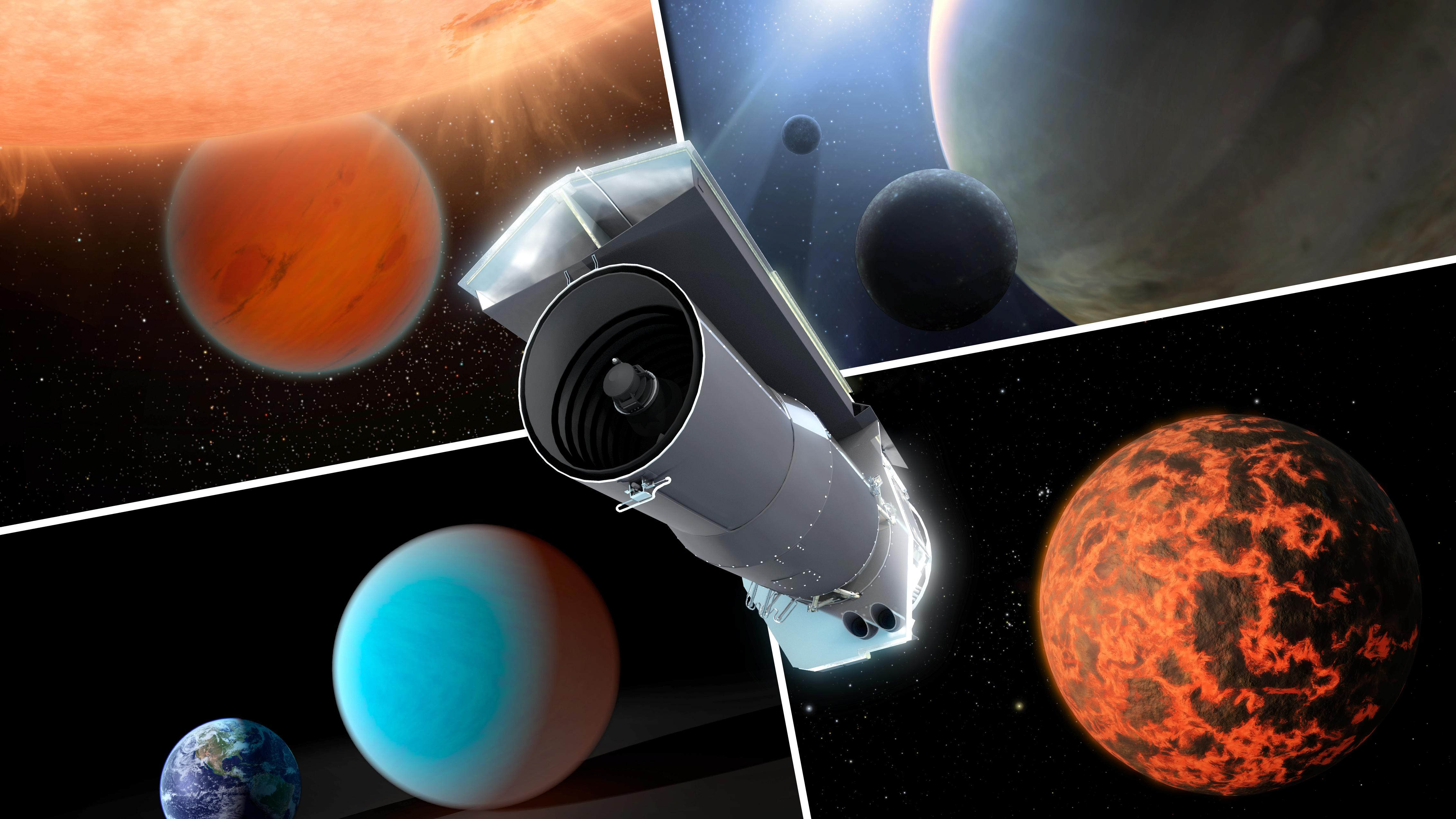
|
Spitzer Trains Its Eyes on Exoplanets (Artist Concept)
- Click the image above for a larger view
- Full-Res JPEG (4533 x 2550) (684.1 kB)
- Full-Res TIFF (4533 x 2550) (34.7 MB)
Caption:
Over its ten years in space, NASA's Spitzer Space Telescope has evolved into a premier tool for studying exoplanets. The engineers and scientists behind Spitzer did not have this goal in mind when they designed the observatory back in the 1990s. But thanks to its extraordinary stability, and a series of engineering reworks after launch, Spitzer now has observational powers far beyond its original limits and expectations.
This artist's concept shows Spitzer surrounded by examples of exoplanets the telescope has examined.
Background Info:
NASA's Jet Propulsion Laboratory, Pasadena, Calif., manages the Spitzer Space Telescope mission for NASA's Science Mission Directorate, Washington. Science operations are conducted at the Spitzer Science Center at the California Institute of Technology in Pasadena. Data are archived at the Infrared Science Archive housed at the Infrared Processing and Analysis Center at Caltech. Caltech manages JPL for NASA.
For more information about Spitzer, visit http://spitzer.caltech.edu and http://www.nasa.gov/spitzer .
More information about exoplanets and NASA's planet-finding program is at http://planetquest.jpl.nasa.gov .
Cataloging Keywords:
| Name | Value | Additional Values |
|---|---|---|
| Target | ||
| System | ||
| Target Type | Exoplanet | |
| Mission | Spitzer Space Telescope | |
| Instrument Host | Spitzer Space Telescope | |
| Host Type | Space Telescope | |
| Instrument | ||
| Detector | ||
| Extra Keywords | Artwork, Color, Infrared | |
| Acquisition Date | ||
| Release Date | 2013-09-24 | |
| Date in Caption | ||
| Image Credit | NASA/JPL-Caltech | |
| Source | photojournal.jpl.nasa.gov/catalog/PIA17444 | |
| Identifier | PIA17444 | |
